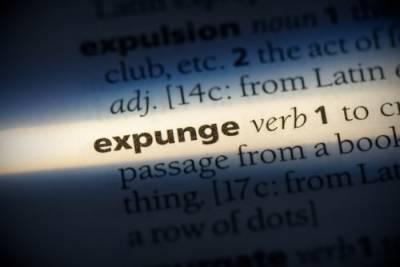 Free consultation
Free consultation630-953-3000
Your Voice Matters
 When a person is arrested or charged with a criminal offense in Illinois, a criminal record will be created even if the person is found not guilty. Criminal records can often be read by any member of the public. To get a criminal record erased or hidden, a person must file a Request to Expunge and/or Seal Criminal Records with a court to have a judge approve the request.
When a person is arrested or charged with a criminal offense in Illinois, a criminal record will be created even if the person is found not guilty. Criminal records can often be read by any member of the public. To get a criminal record erased or hidden, a person must file a Request to Expunge and/or Seal Criminal Records with a court to have a judge approve the request.
There are essentially three ways for people to erase their criminal records. Expungement erases arrests and court supervision from a person’s criminal record so it is like they never happened. Record sealing allows people to hide their criminal records from certain segments of the public, while still be accessible to entities such as law enforcement. Executive clemency is a pardon from the governor of Illinois that will authorize expungement.
When a case is dismissed without a finding of guilt, the record will be immediately eligible for expungement. If a person is sentenced to deferred prosecution, different waiting periods will apply.
A two-year waiting period to expunge a misdemeanor record applies following a supervision sentence. There will be a five-year waiting period to expunge a felony charge following a special probation sentence.
Types of criminal offenses that can be expunged in Illinois include:
Arrests for misdemeanors and felonies not resulting in convictions
Convictions for misdemeanors and felonies only when convictions were reversed or vacated
In instances where an individual received a pardon from the governor allowing expungement of all convictions on their record
Honorably Discharged Veterans who get a Certificate of Eligibility for Expungement from the Prisoner Review Board allowing expungement of all convictions on their record
Eligible misdemeanor or class 4 cannabis convictions under the Illinois Cannabis Regulation and Tax Act.
Sentences for court supervision only if two years have passed since a person successfully finished their court supervision.
Five years have passed since a person successfully finished court supervision for domestic battery, criminal sexual abuse (victims 18 years of age or older), operation of an uninsured motor vehicle, operation of a motor vehicle when registration is suspended for noninsurance, display of false insurance card.
When a person is 25 years of age or older, reckless driving supervision occurring when they were under 25 and they have no other convictions.
Sentences of qualified probation, only if five years have passed since a person successfully finished their qualified probation.
All of that said, some offenses will not be eligible for expungement. These include:
Minor traffic crimes
Misdemeanor and felony convictions, unless they were vacated, reversed, pardoned by the governor, approved by the Prisoner Review Board or a cannabis conviction under the Illinois Cannabis Regulation and Tax Act.
Court supervision or Qualified Probation not being successfully completed.
Court supervision for reckless driving when a person was 25 years of age or older at the time of an offense, driving under the influence (DUI), sexual offenses against a minor under age 18.
Convictions include a finding of guilt resulting in a sentence of probation (other than Qualified Probation, successfully completed), jail or prison time, conditional discharge, time considered served, fines (with no other sentence), and supervisions or qualified probations that are not successfully completed.
Are you seeking help expunging your criminal record? Do not wait to get in touch with the Naperville, IL expungement lawyers at J. Aldrich Law, P.C..
Our firm helps clients achieve successful expungements of their criminal records. You can call 630-953-3000 for a free consultation.
Sources:
https://www.illinoiscourts.gov/forms/approved-forms/forms-approved-forms-circuit-court/expungement-sealing
https://osad.illinois.gov/expungement.html

 630-953-3000
630-953-3000 1700 Park St., Suite 203F, Naperville, IL 60563
1700 Park St., Suite 203F, Naperville, IL 60563 Evenings and Weekends by Appointment
Evenings and Weekends by Appointment